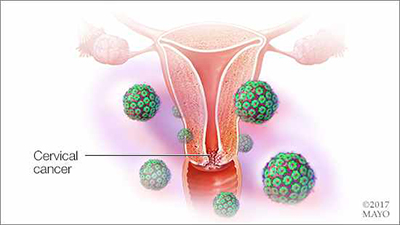Recent Posts
Menopause: Change of life Q&A

What is menopause?
Menopause is the time in a woman's life when she stops having monthly periods. It's often referred to as the change of life and marks the transition between a woman's childbearing and nonchildbearing years. Menopause is a natural part of aging and occurs due to the gradual loss of estrogen — a hormone produced in the ovaries.
What are the signs and symptoms of menopause?
Menopause is diagnosed primarily by its symptoms and usually occurs between the ages of 45 and 55, with an average age of 51. Women often develop irregular periods, hot flashes, night sweats, mood swings and fatigue as estrogen production declines. These symptoms usually develop three to five years before a woman's last period — a time referred to as perimenopause.
If a woman is 45 or older and stops menstruating altogether, then a presumptive diagnosis of menopause can be made. It's officially diagnosed when a woman has been without a period for one year. Most women in this group don't need any lab testing to confirm menopause, especially if they have menopausal symptoms, such as hot flashes or vaginal dryness.
If a woman is under 45 and stops having periods or thinks she may be having menopause symptoms, then she should talk with her health care provider. She may need testing to see if it's menopause or another problem causing her symptoms. Women should see their health care provider if they have menopausal symptoms that are bothersome, heavy bleeding during or between their periods, or if they start bleeding again after completing menopause.
Menopause affects all women regardless of race or socioeconomic background but is an individualized experience. Some women have more estrogen-related symptoms and find menopause extremely bothersome, while others notice little difference in their daily lives.
What are the long-term complications of menopause?
Long-term complications are linked to the decreased levels of estrogen associated with menopause. Osteoporosis, which is thinning of the bones, leads to a decrease in bone mass which may lead to curvature of the spine, fractures and pain. The risk of cardiovascular disease, including heart attacks and strokes, also is increased in postmenopausal women.
What are the treatment options for menopause?
Medical treatments for menopausal symptoms include hormone replacement therapy, antidepressants and anti-seizure medications. Estrogen replacement is the most effective treatment for menopausal symptoms.
While there have been concerns in the past about the safety of hormone therapy, for most healthy women seeking help with menopausal symptoms, it's safe, low-risk and effective. Hormone therapy typically is given for up to five years and is not recommended for women with a history of breast cancer, heart disease or stroke.
In addition to hormone replacement therapies, some types of antidepressants can help ease hot flashes and other menopausal symptoms — even in women who are not depressed. There also are anti-seizure medications that can help treat hot flashes in some women.
Women should speak to a health care provider before taking any natural remedies, as some may not be safe, especially for women with a history of breast cancer.
There are many treatments for menopause that don't have hormones, including calcium supplements and vitamin D for the prevention of osteoporosis.
Eating a reasonable diet full of nutritious foods also will help manage menopause. Nutrition recommendations include increasing fruits, vegetables and whole grains, especially foods high in vitamin C and carotene, and decreasing foods high in saturated fat, cholesterol, salt and processed sugars.
Regular exercise benefits the heart and bones, helps regulate weight and improves mood. Weight-bearing exercises help increase bone mass and reduce the risk of fracture. Finally, smokers are encouraged to quit because studies show that smoking intensifies hot flashes.
Menopause is a normal part of a woman's life and doesn't always need to be treated. However, menopausal symptoms can be disruptive. Women having bothersome symptoms should see a health care provider. Effective treatments for the relief of symptoms are available.
While menopause isn't always a transition many women welcome, it's important to remember there is life after menopause.
Ginny Clementson is a nurse practitioner based in Mankato, Minnesota, specializing in OB-GYN and prenatal care, and sees patients through virtual (video) appointments.





